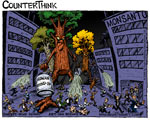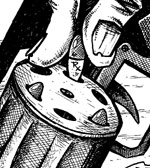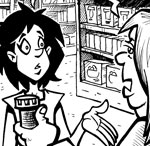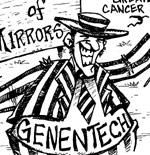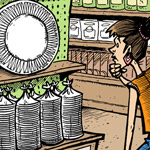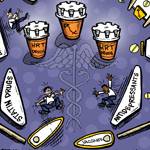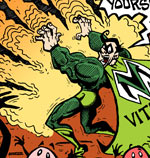Serotonin Toxicity - The Food Sensitivity Doctors Don't Tell You About
| Share on Facebook | Share on Twitter | Share on Google+ |
Carlos did not have any trouble holding his liquor, but drinking just one banana daiquiri could nearly cause him to lose consciousness.
Barbara did not have a neurological disease, but eating a second helping of pecan pie could make her fingers twitch.
Telly loved guacamole. He could eat bowls and bowls of the creamy avocado concoction, especially if it was made with pico de gallo, chopped tomatoes, peppers, and onions.
Robert had the proverbial cast-iron stomach. But sampling a salad made with a whole cup of walnuts gave him diarrhea for nearly a week.
Bananas, pecans, avocados, tomatoes, peppers, and walnuts have a constituent in common that isn't mentioned in nutrition classes, and isn't mentioned in medical school. All of these foods contain naturally occurring serotonin. (See serotonin foods).
Serotonin is usually a good thing. The brain and the intestines make serotonin as a regulatory chemical. More serotonin in the brain helps electrical impulses jump the gap between neurons. More serotonin in the bowel helps waste matter flow out, faster when there are indications of toxic contents.
Too Much Serotonin in Brain
Too much serotonin, however, is not a good thing. Too much serotonin in the brain makes nerve impulses jump the gap between neurons with too much of "kick." Excess activity in the central nervous system can lead to racing pulse, zooming high blood pressure, tics, twitches, and even seizures. Muscle damage from repeated seizures can overwhelm the kidneys and even lead to death.
In the digestive tract, serotonin accelerates the passage of food. Partly digested food can flow out of the stomach into the small intestine, insufficiently processed to be absorbed. The bits and pieces of undigested food can get caught in the villi, or pockets, lining the intestine, causing inflammation and irritation, or they can simply trigger painful and urgent diarrhea.
Signs of Serotonin Overdose and Toxicity
All of these symptoms are signs of serotonin toxicity. They can be caused by taking too much of a serotonin reuptake inhibitor (SSRI) or too much or a supplement intended to increase serotonin, and they can also be caused by eating very large amounts of serotonin-rich foods, which include the foods listed above plus butternuts, black walnuts, plums, and most tropical fruits.
If you ever experience gastrointestinal problems that just don't make sense after eating any of these foods, chances are you have serotonin toxicity. What do you need to do about it?
If your symptoms are primarily gastrointestinal, it's best just to let them pass. Treatments for diarrhea that work by paralyzing the digestive tract, such as the opium-based paragoric, probably will work best, but the diarrhea itself removes the excess serotonin that causes the diarrhea, gas, and heartburn.
If your symptoms involve loss of consciousness, tremors, or seizures, then it's a good idea to see a doctor right away. There are medicines that neutralize serotonin, and it is important to make sure you do not suffer kidney damage or dehydration.
-
Skin CareMen Skin Care
-
Free ResourcesFree eBooks
-
Half of the modern drugs could well be thrown out of the window, except that the birds might eat them.Dr. Martin Henry Fischer
-
Featured Health Supplement"...I also suffer from mild-to-moderate depression, so several months ago as an experiment I ordered a few bottles of the Neuro-Natural Serenity formula, but never took it consistently. However, I started taking it faithfully last week at full dose and already my spirits are lifting and I have a greater clarity of mind."
Cathi, USA -



